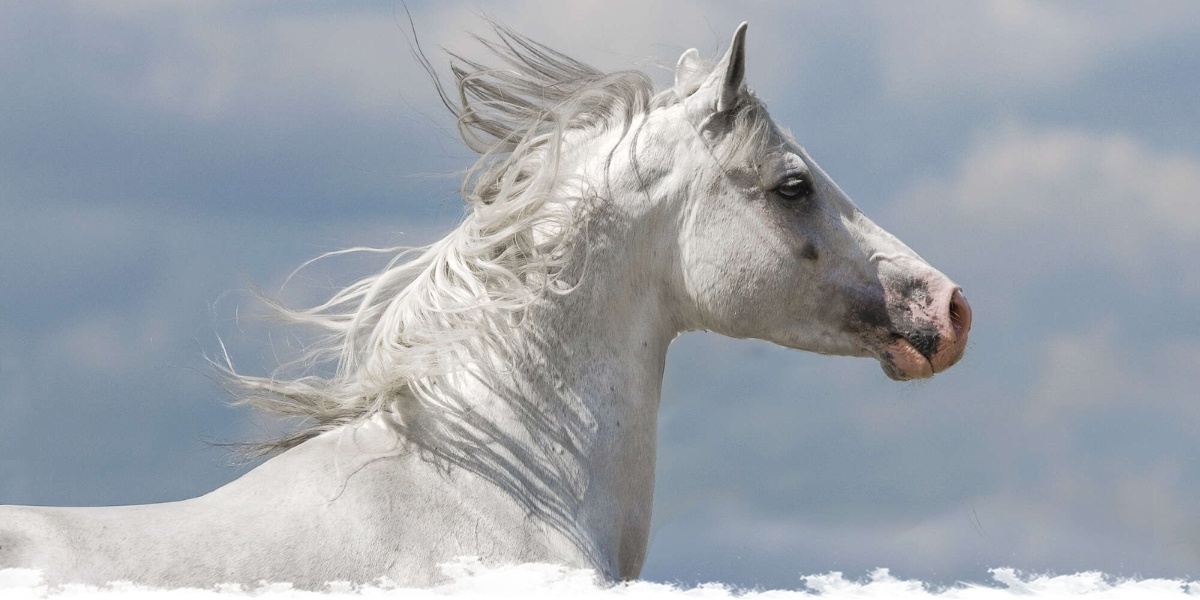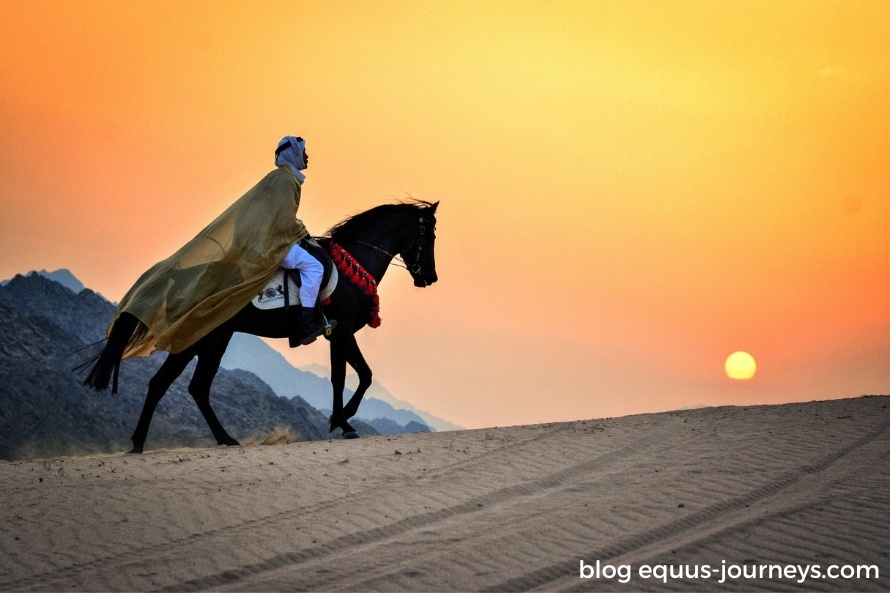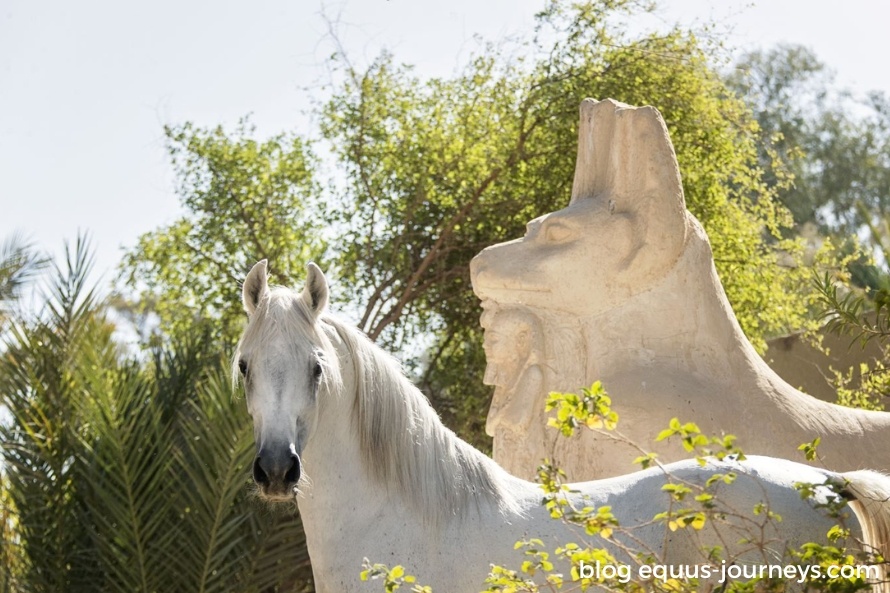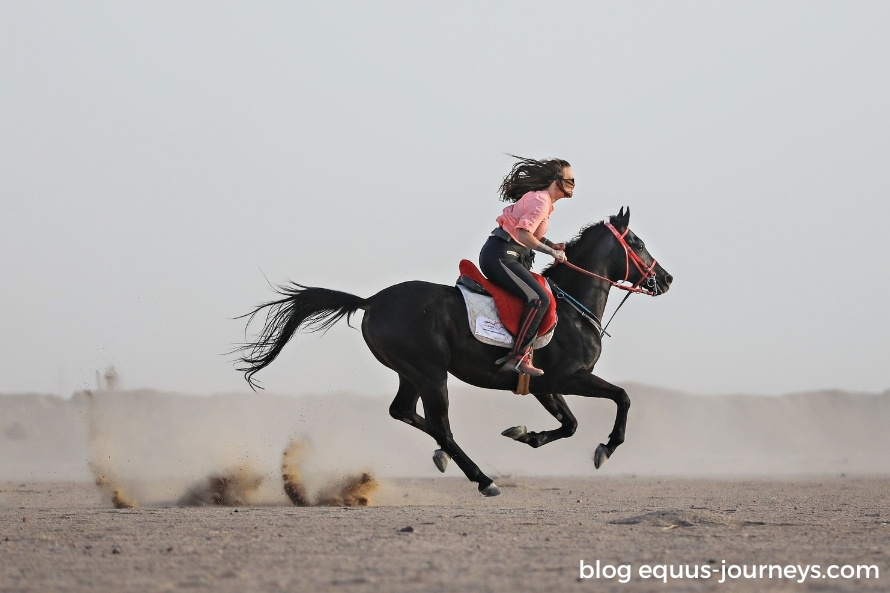
The Arabian Horse
Arabian horses are among the world’s most noble and
oldest breeds, with archaeological evidence dating as far as 4500 years ago. In
this blog post we will be diving into this breed’s history and learning more
about its past and unique characteristics.
Origins & Historic Relevance
The story of the Arabian horse is thousands of years old and filled with
poetry, art, and romantic legends. It also embraces a number of historical figures,
from prophets to kings, reaching various civilizations in the world.
In ancient history throughout the Middle East, horses
with refined heads and high tail carriage were depicted in artwork,
particularly that of Ancient Egypt in the 16th century BC. While the
origins of the Arabian horse are lost in the sands of time, most experts
believe that this breed originated around the Arabian Peninsula. Despite their
“true” origin, climate and culture ultimately shaped the Arabian. The desert
environment required a domesticated horse to cooperate with humans. Where there
was no pasture, the Bedouin fed their horses dates and camel’s milk. The horses
were used for transportation, hauling loads, and war mounts. Their role was vital
and it was reflected in the way they were treated, with many families bringing
them into their own tents at night for warmth and protection.
Eventually, the
breed would make its way to Europe and beyond due to both war and trade. Evidence
leads us to believe that many horses with Arabian bloodlines entered Europe as
spoils of war with Crusaders returning from Palestine in the 11th
century.

Temperament
& Characteristics
Arabians stand, on average, between 14 and 16hh. While they are
the ancestors of many modern-day horses, many traits set this breed apart from
others. They are known for their long, arched necks, and high tail carriage.
They have floating gaits and are smooth to ride.
Even though
Arabian horses are often referred to as spirited, they also have a sensitive
and good-natured side to them. They have a gentle nature, and form bonds rather quickly with those
who love and appreciate them. They are also
often used as show horses due to their delicate appearance. They have a far higher
endurance than most breeds, and they are agile and eager to move by nature. Due
to their genetic purity, they were often used for breeding with other horses
such as Trakehner horses, English thoroughbreds, and others.

Endurance Riding
Endurance riding is a demanding and competitive discipline
testing the horse’s condition and stamina. Due to their extraordinary stamina,
lung capacity natural athleticism, the Arabian is
one of the most successful breeds in endurance riding.
A quick look at the Tevis cup’s winner
will show you that a (very) vast majority of past winners were Arabians and
Arabian crosses. The last non-Arabian winner was “Marko B”, a 13 yo Mustang…
all the way back in 1960! (See results here).
You can discover more about this wonderful breed and experience
it first hand on some of our riding holidays in Egypt, Turkey or Jordan… or
even as far as Namibia or Australia!

Did you know...?
Pieraz was an Arabian horse, world endurance champion who reached the
top of his career in the 90’s. As a common practice, Pieraz was castrated
however as he showed enormous potential, and had great characteristics his
owner, Valerie Kanavy, looked for other options that would ensure his qualities
would be transmitted to future generations.
Back then, no horse had been cloned yet but Valerie still
allowed a physiologist to collect and store a tissue sample from her horse. In
2002, she heard about cloning methods and decided to donate the sample to a
group of researchers.
On February 25th of 2005, the birth of
Pieraz-Cryozootech-Stallion, the second cloned horse in the world was
officially announced.
More information...
To find out more about our rides, please visit our website. You can also contact us directly at info@equus-journeys.com or give us a call on +44 (0)1905 388 977
